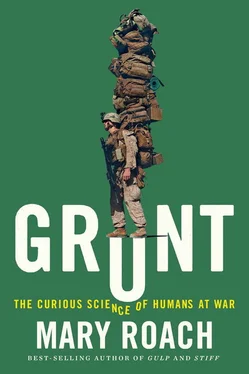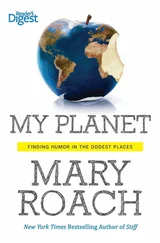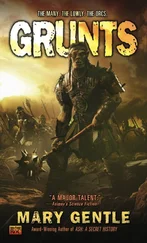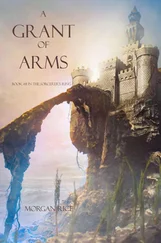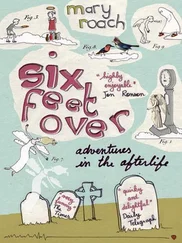These are the people I want to speak with. I’m interested in diarrhea as a threat to national security. How would the takedown of Osama bin Laden have played out had one of the SEALs been fighting the forces of extreme urgency? How often is food poisoning the cause of a “mission fail”?
Yesterday I convinced the droll and adorable Camp Lemonnier public affairs officer, Lieutenant Seamus Nelson, to put a request in the daily email feed that goes out to everyone on base. (“…Mary is looking for individuals who would be willing to share a story about how a case of diarrhea has impacted them while engaged in operations….”) Because really, how do you step into that conversation? The men of Special Operations are easy to spot—the beards, the build, the air of stony omnipotence—but they are not easy to talk to. They keep solidly to themselves. You don’t find them in the bar or the Combat Café. No one from Special Ops showed up at the LGBT barbeque or competed in the Fourth of July Cardboard Boat Regatta. Nor will you find them at the gym. They have their own equipment and trainers inside the zone.
“They only come out to eat,” says Riddle. We are sitting in Seamus’s office, waiting to talk to one of the four people who replied to the now infamous diarrhea email.
Seamus nods. “And to steal our women.”
The interviews have been scheduled back-to-back, one man coming in as another leaves, the Public Affairs container having taken on the quiet, hangdog air of a Catholic confessional. We just listened to the commanding officer of an inshore boat unit that protects Navy ships from USS Cole –type terrorist attacks in the port of Djibouti City. He demonstrated the maneuvers using Seamus’s stapler as the “high-value asset” kept safe by a tape dispenser and a bottle of allergy pills, zigzagging across each other’s paths. An inopportune bathroom break would leave the stapler vulnerable to attack. Even if crew stick to their posts, their vigilance is compromised; “illness preoccupation” is an overlooked military liability of diarrhea.
We heard a similar tale from a bombardier. On a long sortie out of Diego Garcia island, the only crew member capable of operating the plane’s defensive equipment abruptly left his post to use the chemical toilet—while flying over Taliban-controlled Afghanistan. On the return flight, a faulty seal combined with the pressure differential between the toilet’s tiered chambers caused the contents to spew into the crew cabin. “Be assured,” he deadpanned, “this blue-brown precipitation affected the navigator’s ability to concentrate on his duties.”
Our 3:30 is retired from Special Operations, now working as a contractor. A tattoo on the inside of one forearm depicts a pair of crossed metal objects that I can’t identify but guess to be martial arts weapons of some variety. When I ask what his job is, he answers cryptically, “I fix things.” I take this to be a euphemism for some unspeakable niche calling—eliminating witnesses, disposing of bodies, God knows. Subsequent conversation reveals that the man is, in fact, a mechanic. He fixes things. The objects in the tattoo turn out to be pistons.
The mechanic was hit with diarrhea every time his team deployed. Because of this, he was never assigned any “long-range surveillance,” meaning counter-terrorism missions deep into insurgents’ turf. These missions, he says, entail hiding out in a hole, [35] Tips for hole-living: Double-bag your peanut butter sandwiches in gallon Ziplocs, as the bags serve double-duty as the toilet. Bring cat litter to put in the bags in case diarrhea strikes, which it does reliably enough that the man who told me this, an air strike controller just back from Niger, was confronted by his commander wanting to know why Special Operations Command was requisitioning kitty litter.
watching a particular spot—say, an intersection: who comes and goes, how many trucks drive through, at what time of day.
I nod, but don’t entirely understand. “To find out…?”
“Do we aim a bomb here.”
“Ah.” Silly me.
I ask the Special Operations mechanic whether he knows of a vital operation that might have been compromised because someone got a vicious case of food poisoning. He dismisses the very idea. “The guys they select for this type of work? They don’t have these types of problems. They’re selected for a reason.”
After he leaves, Seamus turns to us. “Wow, do you think that’s part of the screening for Special Operations? Give you some bad food, see how you do?” He’s joking, but in fact 20 percent of the population are what Riddle calls “nongetters”: people who can eat ceviche from street vendors, drink the water, never get sick. It would certainly be an asset. Riddle wonders whether Special Operators take antibiotics or Imodium prophylactically, just in case, before critical missions. Or are they just suffering in silence? The Camp Lemonnier Special Ops doctor—they have their own, natch—talked about the men’s reluctance to seek medical help lest they lose their Special Operator status.
Riddle and I have a lot of questions. Alas, no one from Special Operations replied to the diarrhea email.
Perhaps a second email is in order, this one offering compensation. Riddle advises against it. He says people will make up a story to get the cash. He has had men sign up for the diarrhea study, go into the bathroom, and hand him a Commode Specimen Collection tub with a perfectly formed turd inside.
“Also?” Seamus again. “I’m done sending out PSAs about diarrhea. I’m set.” He got some blowback from Combined Joint Task Force–Horn of Africa headquarters regarding appropriate content for base-wide email.
Chow is my one shot.
SEAMUS NELSON is six foot three. When he extends his neck to its full reach, his head is like a periscope. It’s up now, surveying a sea of clean-shaven, supper-chewing heads in the Camp Lemonnier dining facility. He’s scanning for facial hair. Only two categories of men here are allowed to wear beards: [36] The clean-shaving rule began with the gas attacks of World War I. Whiskers compromise the airtight seal of a gas mask. (Special Operators are exempt because they may need to blend in with bearded Muslim locals, and because they’re Special.) There were also some hygiene concerns. In 1967, the Department of the Army undertook an investigation entitled “Microbiological Laboratory Hazard of Bearded Men.” To see whether bearded sixties bio-warfare lab workers might be putting their family members at risk via “intimate contact,” the researchers fashioned some human hair beards, contaminated them with deadly pathogens, and attached them to manikin heads. The heads then became intimate with some chicks. “Each of three 6-week-old chickens was held with its head alternately nestled in the beard and stroked across one-third of the beard (one chicken on each side and one on the chin).” When the beards were washed according to lab safety protocol, none of the nine chicks exposed to the highest concentration of the virus became infected. The heads with unwashed beards, however, transmitted deadly disease to the chicks with whom they’d been intimate. The chicks died, and the heads were never really the same after that.
Special Ops and civilian contractors who want to look like Special Ops.
“There’s your guy.” The neck now retracted. “Far corner by the door.”
Riddle and I rise from our seats. We saw this man yesterday, coming out of the tactical shop. Even without the beard, you’d know he’s one of them. There are men who attempt to broadcast toughness by what they wear or drive or have tattooed on themselves. And there are others, like this man, who do nothing to cultivate or consciously project it, and yet it is obvious. It accretes naturally of the things they’ve experienced.
Читать дальше
